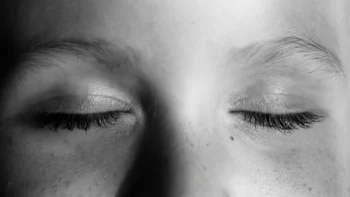Having blurry vision and headaches is an uncomfortable pairing, bringing about the inability to narrowly focus your attention on your day-to-day tasks, let alone let you concentrate with the depth you need to get anything done. While these symptoms are often nothing more than a sign of stress or fatigue, on rare occasions they can be a sign of an underlying medical condition. If you’re suffering from both, it’s important to pinpoint the potential cause, which is why we recommend using the following common-cause, self-checklist below.
Non-Life Threatening Causes
Have You Been Sitting at a Computer All Day?
If the answer is yes, take a break immediately. Get up, do some light stretching, and walk around. Maybe spend 2-10-minute staring out your window at something far off in the distance. Staring at a computer screen (or mobile device) all day long can cause serious eye strain, which causes blurry vision and headaches.
Have You Been Diagnosed With Migraines?
Migraines cause severe pulsing pain that comes with symptoms like an upset stomach, nausea/vomiting, sensitivity to light, and visual disturbances. These visual disturbances are often short-lived, lasting an hour or less, but can include blurry vision, blind spots, tunnel vision, partial/complete vision loss, and light auras around objects.
Do You Have An Outdated Eye Prescription?
If your headaches and blurry vision seem to be consistently getting worse, it could be that your current eye prescription is out of date. By booking an appointment with an eye doctor and getting your prescription updated can help combat or eliminate both of these symptoms.
Are You Diabetic? Low-Blood Sugar May Be The Cause!
If you’re living with diabetes, it’s important to keep your blood sugar levels in check, as low blood sugar can be dangerous. Symptoms of hypoglycemia include blurry vision and headaches, confusion, shakiness, anxiousness, nausea, sleepiness, irritability, a fast heartbeat, and more.
If this is you, immediately measure your blood sugar levels and consume a beverage or food item that will get them back into range, or seek medical attention. Plus, make sure that every year you receive a diabetic eye care appointment, as diabetes increases risk for specific eye conditions.
Have You Recently Taken a Fall?
A fall can cause serious injury, including head trauma, which can lead to blurry vision and headaches. If you’ve recently fallen and are experiencing these symptoms, book an appointment with your doctor as soon as possible.
Do You Experience Blood Pressure Shifts?
If you’re experiencing blurry vision and headaches, excessive blood pressure shifts could be the culprit. Blurry vision caused by high blood pressure may be accompanied by heart palpitations, anxiety, nausea and vomiting, headaches, sweating, and low-energy levels. Blurry vision caused by low blood pressure may be accompanied by dizziness, fainting and feeling weak. Make an appointment with your doctor to get your blood pressure levels tested, and remember that lifestyle changes, such as increasing your physical activity and eating a healthy diet, can go a long way toward maintaining healthy blood pressure levels.
If you don’t believe you’re suffering from any of the above, then your blurry vision and headache may be symptoms of an emergency condition that requires you to seek immediate medical attention.
Emergency Conditions Associated with Blurry Vision and Headaches
Carbon Monoxide Exposure
Blurry vision and headaches can be signs of carbon monoxide exposure, particularly if they are accompanied by nausea/vomiting, dizziness, heavy brain fog, or exhaustion. If you suspect you may have been exposed to carbon monoxide, get fresh air right away and call your doctor or emergency services for further instructions.
Ischemic Stroke
Blurry vision and headaches can also be signs of an ischemic stroke, which occurs when a blocked artery prevents blood from reaching your brain. Other symptoms of an ischemic stroke may include numbness or weakness on one side of your body, confusion, and difficulty speaking or understanding language, or a loss of coordination. If you suspect that you or someone near you may be experiencing the symptoms of an ischemic stroke, call for emergency assistance immediately.
A Traumatic Brain Injury (TBI)
If you’ve recently been in an accident that has caused a blow to the head, then blurry vision and headaches could be a sign of a traumatic brain injury, particularly if it’s accompanied by other symptoms like difficulty speaking or concentrating, ringing in the ears, mood swings, sleep changes, fatigue, dizziness, confusion, and sensitivity to light or sound. If you have been in an accident or otherwise suspect that you may have suffered a TBI, seek medical attention right away for a full assessment and treatment.
If you have an outdated eye prescription, are experiencing migraines, or spend the majority of your day in front of screens, you may be at risk for blurry vision and headaches. To help protect your eyes from further staring and reduce the frequency of these symptoms, contact Brimhall Eye today! Our team in Las Vegas can help you with our vision correction options, and offer tips on reducing eye strain so that you can enjoy better vision and improved health.





